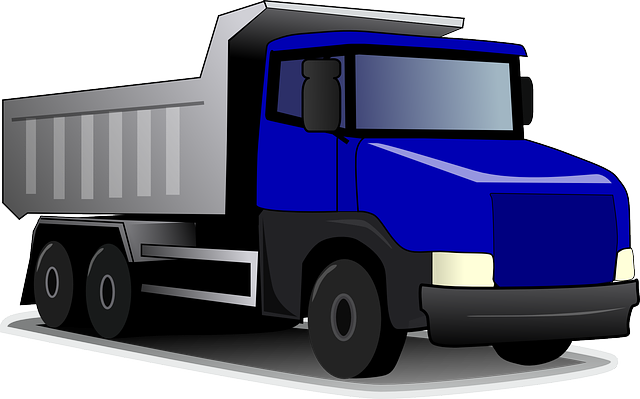Securing appropriate insurance for heavy-duty trucks in the trucking industry is a multifaceted task that requires understanding and managing a wide array of risks, including cargo protection, vehicle integrity, and liability. Truckers must tailor their insurance coverage based on operational specifics like freight type and travel routes to ensure regulatory compliance and financial stability post-incident. Specialized insurance services offer customized solutions such as motor truck cargo (MTC) insurance and coverage for scenarios like trailer interchange. It's crucial for operators to be knowledgeable about the various types of insurance beyond standard policies, including enhanced options that cover legal costs and rental vehicle reimbursement after claims. Expert consultation with insurance advisors well-versed in trucking can guide operators through the selection process for the most suitable coverage. By focusing on risk management tools like driver training and technology-aided route monitoring, trucking businesses can operate more securely and resiliently, ensuring business continuity even during unforeseen events. Investment in specialized insurance services is key to maintaining the operational integrity and long-term viability of heavy-duty trucking operations. Keywords: trucking insurance, heavy-duty trucks, tailored insurance policies, financial stability post-incident, cargo protection, truckers, motor truck cargo insurance, risk management, interstate operations.
Navigating the intricacies of insurance for heavy-duty trucks is a critical aspect of the trucking industry that demands careful consideration. This article delves into the essentials of obtaining professional insurance services tailored to the unique needs of heavy-duty truck operators. We explore the complexities inherent in this sector, highlighting the importance of comprehensive coverage options and effective risk management strategies. Operators will gain valuable insights into selecting the most suitable policy for their operations, ensuring they are well-protected on the road. Understanding these components is paramount for safeguarding your investment and maintaining peace of mind while managing a heavy-duty trucking business.
- Understanding the Complexities of Heavy-Duty Truck Insurance: A Comprehensive Guide for Operators
- Tailored Coverage Options: What Every Heavy-Duty Truck Operator Needs to Know
- The Role of Risk Management in Heavy-Duty Trucking: Strategies and Best Practices
- Navigating the Insurance Landscape: How to Choose the Right Policy for Your Heavy-Duty Truck Operations
Understanding the Complexities of Heavy-Duty Truck Insurance: A Comprehensive Guide for Operators

Navigating the intricacies of insurance for heavy-duty trucks is a multifaceted endeavor that demands a thorough understanding of the various risks and liabilities associated with trucking operations. Operators must consider the diverse nature of their business, from cargo protection to vehicle damage and liability coverage. The right insurance policy can mitigate financial risks stemming from accidents, theft, or natural disasters, which are inherent in the trucking industry. It’s imperative for truckers to evaluate their specific operational needs, including the type of freight transported and the geographical routes traveled, as these factors significantly influence coverage requirements and policy costs. Additionally, staying abreast of regulatory changes that affect insurance mandates is crucial for compliance and risk management in the trucking sector. Properly tailored coverage not only safeguards the financial stability of operators but also ensures the continuity and reliability of service in the heavy-duty trucking industry.
Tailored Coverage Options: What Every Heavy-Duty Truck Operator Needs to Know

When operating heavy-duty trucks, ensuring comprehensive coverage is non-negotiable in the trucking industry. Professional insurance services offer tailored coverage options that cater to the myriad risks associated with heavy-duty trucking. These include liability for cargo loss or damage, physical damage to the truck itself, and contingencies like trailer interchange. Operators must understand the nuances of these options; for instance, coverage can extend to various scenarios such as accidents involving other vehicles, environmental factors, or even theft. Tailored policies often come with additional protections, like on-hook legal costs or rental reimbursement following a claim, which are critical for maintaining operations and financial stability post-incident.
In the realm of trucking insurance, operators should be aware of the different types of coverage available to them. Beyond the basic physical damage and liability insurance, there are options for motor truck cargo (MTC) insurance to protect against loss or damage of goods in transit. Also, operators must consider the implications of operating across state lines, which necessitates understanding interstate insurance requirements. A thorough review of potential coverage with a knowledgeable insurance provider can illuminate the best options for each operator’s unique needs, ensuring that their investment in trucking is protected against unforeseen events.
The Role of Risk Management in Heavy-Duty Trucking: Strategies and Best Practices

In the realm of heavy-duty trucking, risk management plays a pivotal role in safeguarding operations from unforeseen events. Professional insurance services tailored for truck operators are not merely about securing assets; they encompass a comprehensive approach to identify, assess, and mitigate risks associated with the logistics and transportation industry. Operators must implement rigorous safety protocols, conduct regular vehicle maintenance checks, and ensure compliance with all applicable regulations to minimize potential liabilities. By partnering with insurance providers who specialize in trucking, operators can access risk management strategies that include advanced training for drivers, sophisticated tracking technology to monitor routes and conditions, and customized policies that align with the unique challenges of the road. These measures not only protect the financial stability of the business but also contribute to a safer environment for all parties involved in the trucking ecosystem.
Furthermore, the selection of insurance coverage should be informed by an analysis of potential risks, including cargo loss, vehicular damage, and legal liabilities arising from accidents or disputes. Insurance carriers adept in the trucking sector offer a suite of policies that address these concerns, from physical damage protection to contingent cargo insurance. By leveraging these tailored solutions, operators can navigate the complexities of the industry with greater confidence and resilience, ensuring business continuity even in the face of adversity. Engaging with specialized insurance services is an investment in the operational integrity and long-term sustainability of heavy-duty trucking enterprises.
Navigating the Insurance Landscape: How to Choose the Right Policy for Your Heavy-Duty Truck Operations

When selecting insurance for heavy-duty trucks, operators must consider the multifaceted risks inherent in trucking operations. The right policy should address liability coverage, which is paramount when dealing with potential accidents and cargo damage. This protection not only safeguards your business financially but also ensures compliance with federal regulations mandating adequate insurance coverage. Additionally, operators should assess the type of cargo being transported, as certain goods may require specialized policies due to their unique risk profiles. It’s crucial to work with an experienced insurance agent who understands the nuances of the trucking industry to tailor a policy that aligns with your specific operational needs and risk factors.
Furthermore, understanding the coverage options available within the trucking insurance landscape is essential. Beyond liability, consider add-ons like physical damage protection for your trucks, which covers theft or damage from non-collision events. Optional coverages such as on-hookover protection can also provide financial assistance when your truck is detained due to circumstances beyond your control. Comprehensive coverage that includes both liability and physical damage can be the difference between a minor setback and a catastrophic event for your business in the competitive trucking sector. Carefully evaluate each policy’s terms, conditions, and exclusions to ensure you have the most robust protection for your heavy-duty truck operations.
In conclusion, the intricacies of insurance for heavy-duty truck operators demand a nuanced understanding and tailored approach. Operators must navigate the complexities of coverage options, employ effective risk management strategies, and select policies that align with their specific needs in the dynamic trucking industry. By leveraging professional insurance services, truckers can safeguard their operations against unforeseen events, ensuring financial stability and peace of mind on the road. It is clear that informed decision-making in this domain is not just about compliance but a strategic advantage for long-term success in the trucking sector.
